Browse in the Library:
| Artist or Composer / Score name | Cover | List of Contents |
|---|---|---|
| Yiruma – First Love – River Flows In You | Yiruma – First Love – River Flows In You | |
| Yiruma – Gabriel | ||
| Yiruma – Kiss the Rain | Yiruma Kiss the rain | |
| Yiruma – Kiss The Rain (Musescore File).mscz | ||
| Yiruma – Love Me | ||
| Yiruma – Maybe | ||
| Yiruma – Mikas Song | ||
| Yiruma – One Day I Will | ||
| Yiruma – Our Same Word | ||
| Yiruma – Passing By | ||
| Yiruma – Piano Album BOOK |
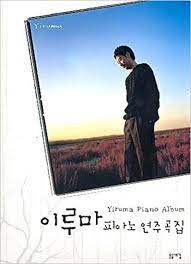 |
Yiruma – Piano Album BOOK |
| Yiruma – River Flows In You | ||
| Yiruma – River Flows In You – 10th Anniversary Version (Piano) |
 |
|
| Yiruma – River Flows In You – Guitar arr. with TABs | Yiruma – River Flows In You – Guitar arr | |
| Yiruma – Shining Smile | ||
| Yiruma – Sometimes Someone | ||
| Yiruma – Sunny Rain | ||
| Yiruma – Tears On Love | ||
| Yiruma – The Moment | ||
| Yiruma – Till I Find You | ||
| Yiruma – Time Forget | ||
| Yiruma – Wait There | ||
| Yiruma – When The Love Falls | ||
| Yiruma Be My First |
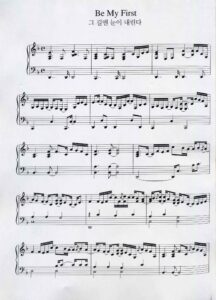 |
|
| Yiruma Because I Love You |
 |
|
| Yiruma Dream A Little Dream Of Me Piano Solo |
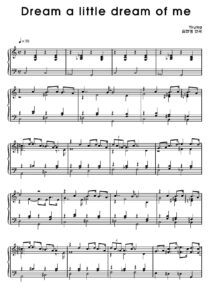 |
|
| Yiruma First Love Piano Solo |
 |
|
| Yiruma Kiss The Rain |
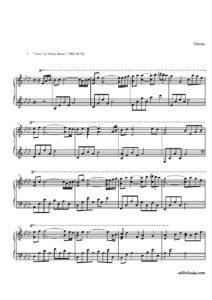 |
|
| Yiruma May Be |
 |
|
| Yiruma Poem |
 |
|
| Yiruma River Flows In You Guitar Solo with Tablature |
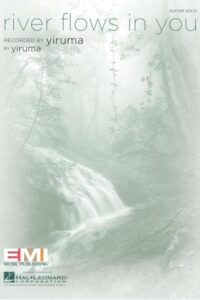 |
|
| Yiruma River Flows In You Piano Solo |
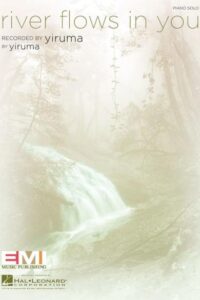 |
|
| Yiruma Room With A View Sheet Music Songbook |
 |
|
| Yiruma The Collection |
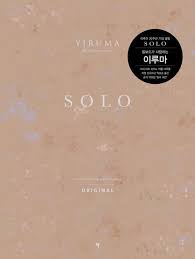 |
 |
| Yiruma Wait There |
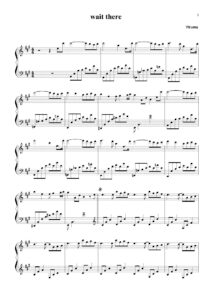 |
|
| Yngwie Malmsteen Trilogy (Full Album, Full Score Guitar Tabs) |
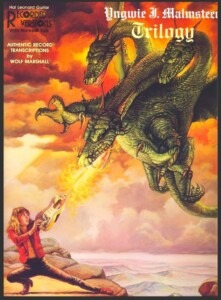 |
|
| Yoasobi (Monster) Easy Piano Solo sheet music |
 |
|
| Yoasobi Love Letter (ラブレター) Yoasobi Piano |
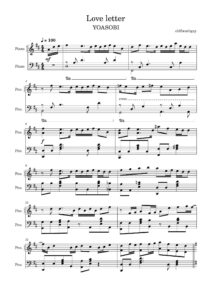 |
|
| Yoasobi Racing Into The Night ピアノ Yoasobi Yoru Ni Kakeru 夜に駆ける |
 |
|
| Yoasobi アイドル Idol Oshi no Ko OP |
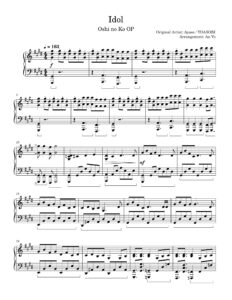 |
|
| Yoasobi あの夢をなぞって Ano Yume Wo Nazotte Tracing that Dream |
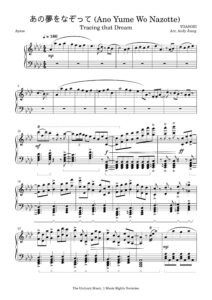 |
|
| Yoasobi 夜に駆ける Yoasobi (Marasy Full Ver ) Yoru Ni Kakeru |
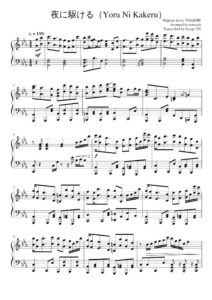 |
|
| Yoasobi 群青(gunjou) piano |
-Piano-sheet-music-232x300.jpg) |
|
| Yoga Music For Piano Solo 24 Chill Songs To Soothe Your Soul |
 |
Yoga Music For Piano Solo 24 Chill Songs To Soothe Your Soul |
| Yoimachigusa Evening Primrose Ohno Tadasuke |
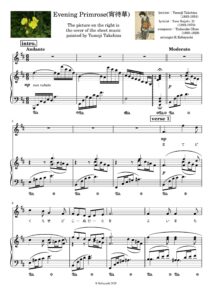 |
|
| Yoko Kanno – Piano Solo from Cowboy Bebop |
 |
|
| Yokoyama La Partition Blanche for piano solo | Yokoyama La Partition Blanche for piano solo | |
| Yokoyama Masaru Again – Your Lie In April Shigatsu wa Kimi no Uso Piano Solo |
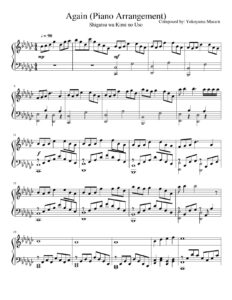 |
|
| Yoshimata, Ryo Between Calm And Passion |
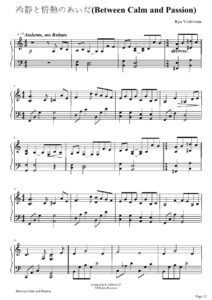 |
|
| Yoshimatsu 4 Little Dream Songs | Yoshimatsu 4 Little Dream Songs | |
| Yoshimatsu 7 Pleiades Dances IX Op 85 |
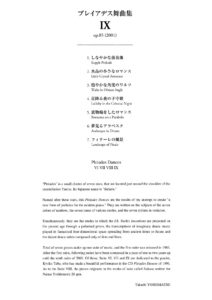 |
|
| Yoshimatsu Piano Folio To A Disappeared Pleiad |
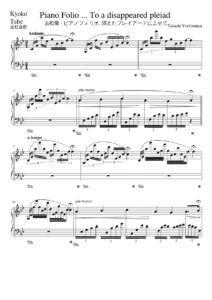 |
|
| Yoshimatsu Takashi Wind Color Vector (Guitar) |
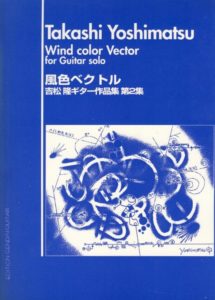 |
|
| Yoshinao Nakada – Etude Allegro | Yoshinao Nakada – Etude Allegro | |
| Yoshinao Nakada – Japanese Festival (Intermediate Piano Solos 17 Piano Pieces for students)) |
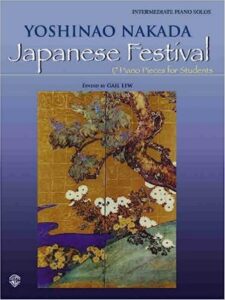 |
Yoshinao Nakada – Japanese Festival (Intermediate Piano Solos 17 Piano Pieces for students)) |
| You (Evanescence) | ||
| You (Ten Sharp) | ||
| You are the only one (Freddie Mercury) | ||
| You Are The Sunshine Of My Life – Stevie Wonder (Musescore File).mscz | ||
| You Go To My Head Guitar Tabs Jazz standard by Haven Gillespie J. Fred Coots |
 |
|
| You Must Believe In Spring Michel Legrand (Musescore File).mscz | ||
| You Raise Me Up (Musescore File).mscz | ||
| You take my breath away (Queen) | ||
| You Took The Sweet From Sweetheart Alex Sullivan, Al Doyle and Irving Kaufman (Vintage Jazz standard) |
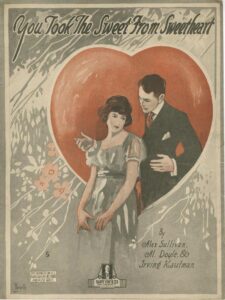 |
|
| You’re A Mean One Mr. Grinch (Musescore File).mscz | ||
| Your Song – Elton John (Musescore File).mscz | ||
| Youve Got A Friend In Me (Musescore File).mscz | ||
| Yugo Kanno – Yoshikage Kiras Theme Piano |
 |
|
| Yugo Kanno – Golden Wind Main Theme (Il vento d’oro) |
 |
|
| Yugo Kanno – Jolynes Theme Stone Ocean Piano Solo |
 |
|
| Yuhki Kuramoto – Piano solo Collection |
 |
|
| Yuhki Kuramoto A Scene Of La Seine |
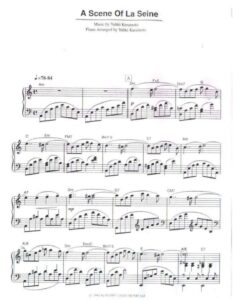 |
|
| Yuhki Kuramoto A Winter Story |
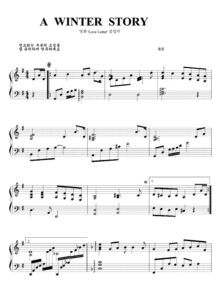 |
|
| Yuhki Kuramoto Lake Louise | Lake Louise1 | |
| Yuhki Kuramoto Romance |
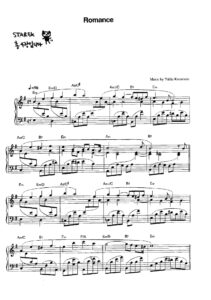 |
|
| Yuja Wang Mozart’s Turkish March From Sonata No. 11 As Per Volodos Fazil Say Arr. |
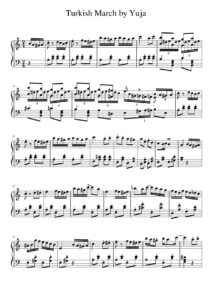 |
|
| Yukie Nishimura – Dances Of Water (Musescore File).mscz | ||
| Yukie Nishimura – Letter (Musescore File).mscz | ||
| Yukie Nishimura Best composition Vol 1 Japanese New Age music |
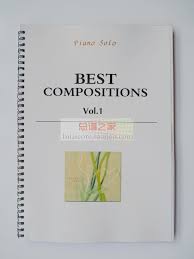 |
Best composition Vol 1 Yukie Nishimura 120 Japanese new age music |
| Yukie Nishimura Best composition Vol 2 Japanese New Age music |
 |
Best composition Vol 2 Yukie Nishimura 112 Japanese New Age music |
| Yukie Nishimura Best composition Vol 3 Japanese New Age music |
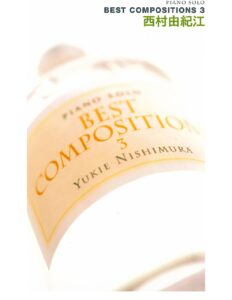 |
Best composition Vol 3 Yukie Nishimura 111 Japanese New Age music |
| Yukie Nishimura Letter |
 |
|
| Yukie Nishimura Xi Cun You Ji Jiang – Dances of water |
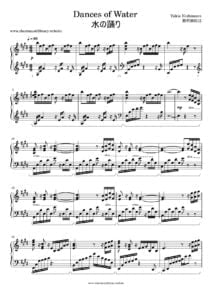 |
|
| Yumi Kimura Itsumo Nando Demo (Always With Me From Spirited Away) Guitar Arr. With Tabs |
 |
|
| Yuna’s Ballad (Musescore File).mscz | ||
| Yuriko Nakamura Comme Ce Jour Piano |
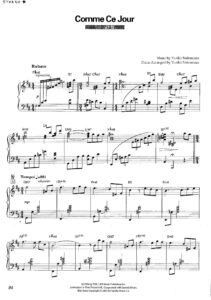 |
|
| Yuriko Nakamura Legend |
 |
|
| Yves Montand Livre D’or |
 |
Yves Montand Livre D’or |
| Zappa, Frank 200 Motels The Suites Full score |
 |
|
| Zappa, Frank and the Mothers of Invention The Complete Guide (Book) |
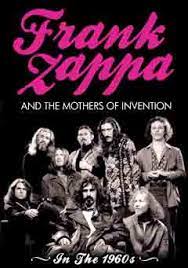 |
|
| Zaz Songbook |
 |
Zaz Songbook |
| Zelda Ocarina Of Time Song Of Storms By Koji Kondo (Piano Solo) |
 |
|
| Zelda – Breath of the Wild – Fairy Fountain |
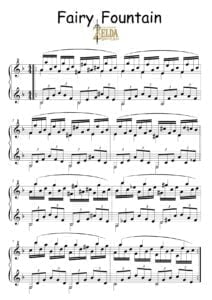 |
|
| Zelda – Breath of the Wild – Flight Range |
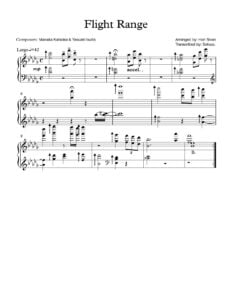 |
|
| Zelda – Breath of the Wild – Mipha’s Theme |
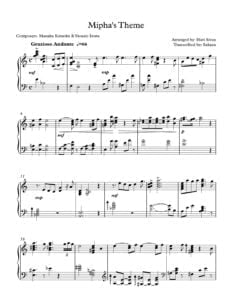 |
|
| Zelda – Breath of the Wild – Revali’s Theme |
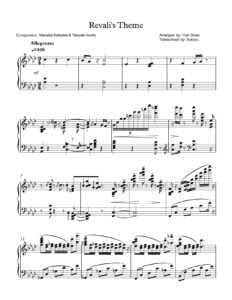 |
|
| Zelda – Breath of the Wild – Riding (day) |
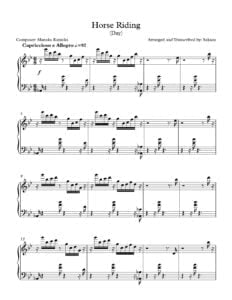 |
|
| Zelda – Breath of the Wild – Rito Village |
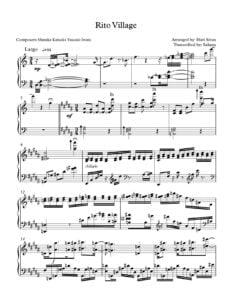 |
|
| Zelda – Dungeon Theme | ||
| Zelda – Ocarina Medley | ||
| Zelda – Ocarina Of Time – Zeldas Lullaby | ||
| Zelda – Saria | ||
| Zelda – The Light World | ||
| Zelda – The Lost Woods | ||
| Zelda – The Triforce | ||
| Zelda -The Legend Of Zelda (Main Theme)by Koji Kondo |
 |
|
| Zelda Medley Piano Solo arr. |
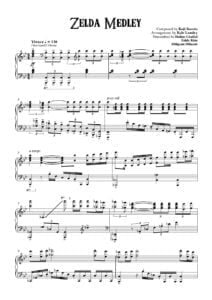 |
|
| Zelda The Legend Of Zelda Great Fairy Fountain (Piano Etude) Erik Correll |
 |
|
| Zombies Songbook Music From The Disney Channel Original Movie |
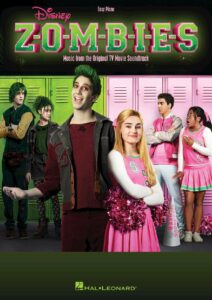 |
Zombies Songbook Music From The Disney Channel Original Movie |
| Zubin Mehta – La partitura della mia vita (Biografia) Italiano |
 |
|
| ZZ Top Greatest Hits |
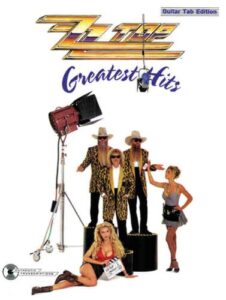 |
ZZ Top Greatest Hits |
| ZZ Top Volume 1 Guitar Vocal CLASSIC Authentic Guitar-Tab Edition includes complete Solos |
 |
ZZ Top Volume 1 Guitar Vocal CLASSIC Authentic Guitar-Tab Edition includes complete Solos (Hamstein Music) |
Jazz: Keith Jarrett – The Art of Improvisation. Exclusive Interviews with Keith Jarrett, Gary Peacock and Jack Dejohnette.
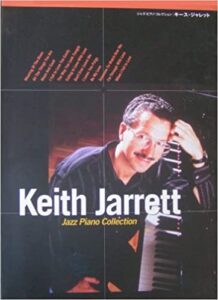
Keith Jarrett’s sheet music transcriptions are available from our Library.
Keith Jarrett: The Art of Improvisation
While he can often engender all manner of contention and argument, it’s unquestionable that Keith Jarrett is one of the most significant pianists to emerge in the second half of the 20th Century.
An artist who has done it all — performed his own sometimes lyrical, sometimes free-spirited compositions with two groundbreaking quartets in the ’70s; taken solo improvisation to a whole new level with a series of important recordings, including the classics Facing You and The Köln Concert.
Contributed a fresh spontaneity to the Great American Songbook with his Standards Trio; tackled the challenging classical repertoires of Bach, Mozart and Shostakovich and composed his own classical works; and played in landmark groups including Charles Lloyd in the ’60s and Miles Davis in the ’70s — Jarrett is also more than a little enigmatic.
Fastidious, perfectionist and, some might argue, highly controlled in his life, Jarrett paradoxically defines the concept of pure abandon in his playing.
With a life’s work that, classical repertoire aside, has always been about spontaneous creation, Jarrett is in an especially capable position to shed light on the true meaning of improvisation.
And so, British producer/director Mike Dibb, responsible for ’02’s The Miles Davis Story, has fashioned a new documentary which, while never explicitly defining what that elusive meaning is, nevertheless manages — after 85 minutes and a series of remarkably erudite interviews with Jarrett and those who have been close to him over the past 30 years — to create a vivid impression that is both inspirational to aspiring musicians and uniquely clarifying to others who want to understand the process of how musicians create something out of nothing.
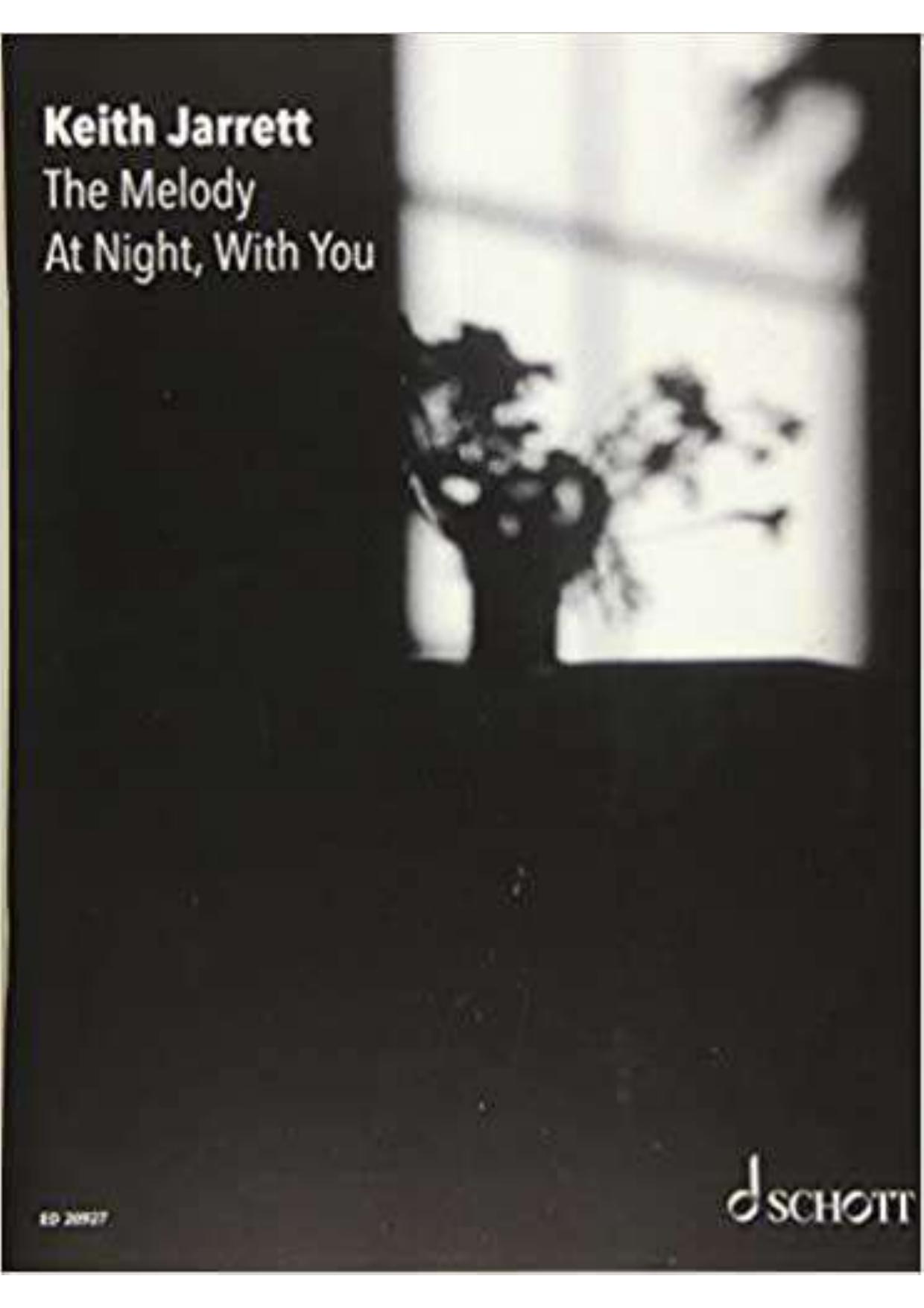
Rather than present a chronological examination of Jarrett’s life thus far, Dibb chooses, much like Jarrett’s own work, to use a seemingly non-linear approach that focuses on Jarrett’s improvisational process although, in the final analysis — just like Jarrett’s extemporization — there is an arc.
Beginning with the Standards Trio, then jumping back to his early days and ultimately ending with his European Quartet including saxophonist Jan Garbarek, bassist Palle Danielsson and drummer Jon Christensen, what becomes evident is that Jarrett’s goal has essentially been the same as when, precociously, he would add both his own original compositions and spontaneous creations to the classical repertoire of recitals dating back as early as when he was only eight years old.
Amongst the many interviews with past and present collaborators including Garbarek, Danielsson, Christensen, Charlie Haden, Gary Peacock, Jack DeJohnette, Chick Corea, Gary Burton and Dewey Redman, perhaps the most significant footage is that with ECM label owner and producer Manfred Eicher, with whom Jarrett found the perfect creative partner early in his career.
Keith Jarrett goes as far as saying that his albums are the product of two people — himself and Eicher — which is a significant distinction.
That Eicher has recorded far more Jarrett performances than have ever been or will ever be released in order to catch those moments of pure magic, those performances where Jarrett alone or with a group is truly at the moment, also demonstrates the high standard and level of discernment that both he and Jarrett apply to deciding what will ultimately be commercially distributed.
That Jarrett has, for 20 years, chosen only to document live performances, rather than record in the studio, is another distinction, one that points to a belief that the audience is, indeed, an integral part of each and every performance.
Jarrett comes across as deeply committed, albeit unquestionably idiosyncratic and unapologetically purist; while he admits to enjoying his time with Miles Davis — the only time in his career where he totally gave up acoustic piano for electric instruments — he also dismisses his electric work by calling such instruments “toys.
Few, if any, pianists other than Jarrett insist that a choice of pianos be provided for each performance, so that he can choose the best one for the concert hall. And the sheer physicality of his playing, along with his total and absolute involvement with the music to the exclusion of anything else, paints a unique picture — as does his level of communication.
Virtually all concert footage — including performances with Lloyd, Miles, the Standards Trio, and the American and European Quartets — demonstrates the incredible interaction that exists at every performance.
Jarrett has, in recent years, come under criticism with regard to the Standards Trio which, at over 20 years, is the longest-lasting group of his career — and, with rare exception, is one of the longest collaborations in the jazz period. Some say that the group has lost its creative edge.
But watching the footage of the trio, and listening to Jarrett, Peacock and DeJohnette discuss how little rehearsal takes place — in fact, rehearsals typically only occur in sound checks before concerts, and it’s not uncommon for the trio to work on something at a sound check and never actually play it in concert — one is truly drawn into the sense of adventure applied to every performance.
And the performance footage, in concert with the interview clips, manages to demonstrate the kinds of risks the trio take with each and every tune; how any one of the members can suggest a new direction with complete confidence that the others will follow.
By the time Dibb’s documentary reaches its end, one may not be able to explicitly define the art of improvisation, but there are profound conclusions implicitly reached. And the documentary compels one to either play some Jarrett recordings or, if Jarrett’s music is new to the viewer, to go out and find some.
The level of excitement and discovery is so vivid that even those who have become jaded with Jarrett in recent times may find themselves with renewed interest. While some bemoan Jarrett’s abandonment of writing, what becomes clear — and Jarrett articulates this at one point — is that every performance involves the act of composition. And that, perhaps more than anything, is the true meaning of improvisation.
